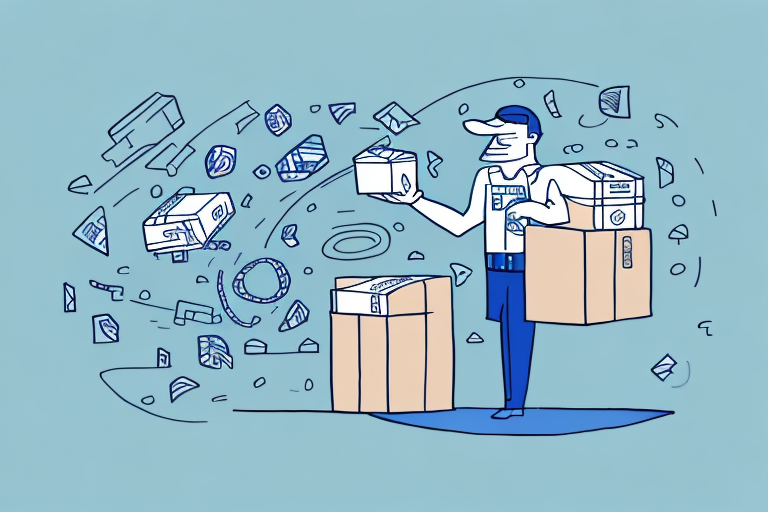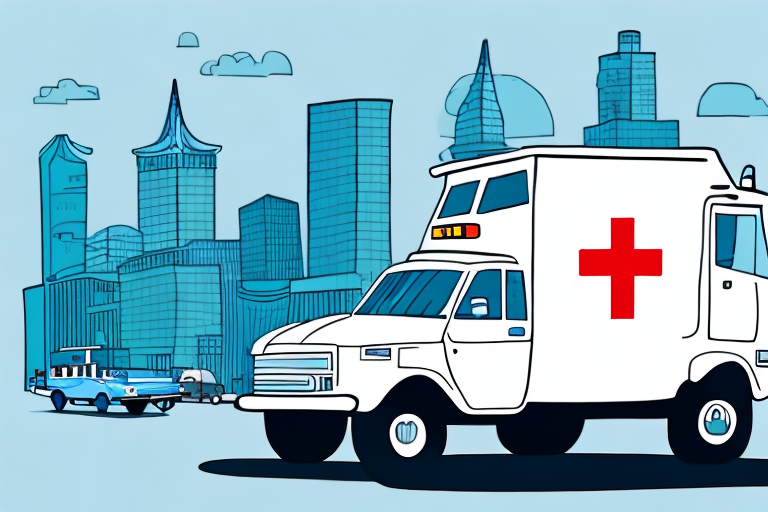Considering a Career as a 1099 Medical Courier?
If you’re exploring new career opportunities in the medical field, becoming a 1099 medical courier might be the ideal choice for you. As an independent contractor, you’ll enjoy a flexible work schedule, the ability to work remotely, and the potential to earn a substantial income. However, before embarking on this path, there are essential factors to consider. This guide provides a comprehensive overview of what a 1099 medical courier entails, the benefits of independent contracting in this sector, the requirements to start your own business, and much more.
What is a 1099 Medical Courier?
A 1099 medical courier specializes in delivering medical supplies, equipment, and specimens to healthcare providers, hospitals, laboratories, or patients' homes. This includes transporting items such as blood, urine, or tissue samples, medical equipment like wheelchairs or oxygen tanks, medications, and medical records. Unlike traditional employees, 1099 medical couriers operate as independent contractors, typically hired by courier companies or directly by healthcare providers on a project-by-project basis.
Being a 1099 medical courier demands a high level of responsibility and meticulous attention to detail. Couriers must ensure that all items are handled and transported safely, securely, and arrive punctually at their destinations. Additionally, they need to be well-versed in medical terminology and procedures, understand specific requirements for different types of medical supplies, and possess excellent communication skills to interact effectively with healthcare providers, patients, and other stakeholders.
Benefits of Being an Independent Contractor in the Medical Courier Industry
Flexibility and Work-Life Balance
One of the primary advantages of working as an independent 1099 medical courier is the flexible work schedule. You have the autonomy to choose when and where you work, allowing you to better balance personal commitments and professional responsibilities. This flexibility can lead to a healthier work-life balance and increased job satisfaction.
Financial Opportunities
Independent contractors often enjoy the potential for higher earnings compared to traditional employees. According to the Bureau of Labor Statistics, the median annual wage for couriers and messengers was approximately $34,800 in 2022, with potential for higher income based on the number of deliveries and contracts secured.
Skill Development and Industry Experience
Working as a medical courier provides valuable experience within the healthcare industry. You'll collaborate with medical professionals, gain insights into healthcare operations, and develop skills that are transferable to other roles within the sector. This experience can be particularly beneficial if you aim to advance your career in healthcare or related fields.
Requirements for Becoming a 1099 Medical Courier
Licensing and Transportation
- Valid driver’s license and reliable transportation
- Commercial driver’s license (if required by state regulations)
- Registration of your vehicle if necessary
Skills and Certifications
- Strong communication and interpersonal skills
- Basic understanding of medical terminology
- Ability to handle and transport sensitive and time-critical items
- Background check clearance
Additionally, having a strong sense of responsibility and attention to detail is crucial, as medical couriers handle sensitive and often urgent deliveries. Flexibility and availability for on-call or emergency transports are also important traits for success in this role.
Steps to Start Your Own Independent Medical Courier Business
1. Determine Your Business Structure
Choose between forming a Limited Liability Company (LLC) or operating as a Sole Proprietorship. An LLC can offer personal liability protection, which is beneficial for mitigating business risks.
2. Register Your Business
Select a unique name for your business and register it with your state’s business registry. Ensure that the name complies with state regulations and is not already in use.
3. Obtain Necessary Permits and Insurance
- Apply for an Employer Identification Number (EIN)
- Secure liability insurance to protect against potential accidents and damages
4. Develop a Business Plan
Create a comprehensive business plan outlining your goals, target market, pricing strategy, and marketing approach. This plan will serve as a roadmap for your business operations and growth.
5. Invest in Necessary Equipment
Ensure you have a reliable vehicle, GPS navigation system, and temperature-controlled containers for transporting medical specimens and supplies. Additional equipment like barcode scanners or delivery management software can enhance your operational efficiency.
Essential Skills for Success as a 1099 Medical Courier
Organizational and Time Management
Effective organization and time management are critical for handling multiple deliveries and ensuring timely arrivals. Utilize scheduling tools and prioritize tasks to maintain efficiency.
Communication Skills
Strong communication skills enable you to interact effectively with healthcare providers and customers, ensuring clear instructions and smooth delivery processes.
Technical Proficiency
Comfort with technology, including GPS systems and inventory management software, is essential for tracking deliveries and managing client accounts.
Knowledge of Medical Terminology
Understanding medical terminology and procedures helps in accurately handling and transporting medical items, ensuring compliance with healthcare standards.
Compliance with Regulations
Familiarity with HIPAA regulations and other privacy laws is crucial for handling sensitive patient information responsibly.
Tips for Finding Clients and Building Your Customer Base
Online Marketing
Advertise your services through a professional website, social media platforms, and online directories. Utilize search engine optimization (SEO) strategies to increase your online visibility.
Networking
Attend local healthcare conferences and networking events to connect with potential clients, such as hospitals, clinics, and laboratories. Building relationships within the healthcare community can lead to recurring contracts.
Referral Programs
Implement referral incentives for existing customers to encourage them to recommend your services to their peers. Positive word-of-mouth can significantly expand your client base.
Partnerships
Collaborate with other businesses in the healthcare sector, like medical supply companies or home health agencies, to offer bundled services and reach a broader audience.
Professionalism and Reliability
Establish a reputation for being trustworthy, reliable, and punctual. Consistently meeting client expectations will help in retaining customers and attracting new ones.
How to Set Your Rates as an Independent Medical Courier
Pricing Strategies
- Per Mile: Charging based on the distance traveled
- Per Delivery: Setting a flat rate for each delivery
- Hourly Rates: Billing for the time spent on deliveries
Consider your operational costs, including fuel, vehicle maintenance, insurance, and taxes, when determining your rates. Research the market rates in your area to ensure your pricing is competitive yet profitable.
Adjusting for Complexity
Factor in the complexity of deliveries, such as the need for temperature-controlled transportation or handling sensitive specimens, and adjust your rates accordingly.
Tax Considerations for 1099 Medical Couriers: What You Need to Know
Self-Employment Taxes
As an independent contractor, you are responsible for paying self-employment taxes, which cover Social Security and Medicare contributions. It's essential to set aside a portion of your income for these obligations.
Quarterly Estimated Taxes
To avoid penalties, make quarterly estimated tax payments to the IRS based on your projected annual income. Utilize the IRS Form 1040-ES for guidance.
Expense Deductions
Keep detailed records of your business expenses, such as vehicle maintenance, fuel, insurance, and equipment purchases. These can be deducted from your taxable income, reducing your overall tax liability.
Consult a Tax Professional
Engage a tax professional to ensure compliance with all tax regulations and to maximize your deductions. Professional advice can help navigate complex tax laws and optimize your financial planning.
Insurance Requirements for Independent Medical Couriers
General Liability Insurance
Protect your business against potential accidents, damages, or legal claims with general liability insurance. This coverage is essential for safeguarding your assets and ensuring business continuity.
Vehicle Insurance
Ensure your vehicle is adequately insured, covering both personal and commercial use. Specialized insurance policies may be required if you transport high-value or sensitive medical equipment.
Additional Coverage
Consider obtaining additional insurance coverage, such as cargo insurance, to protect the medical supplies and specimens you transport. This provides added security against loss or damage during transit.
Tools and Equipment Needed for a Successful 1099 Medical Courier Business
- Reliable Vehicle: A dependable vehicle is crucial for timely and safe deliveries.
- GPS Navigation System: Helps in efficient route planning and timely arrivals.
- Inventory Management Software: Assists in tracking deliveries and managing client accounts.
- Communication Devices: A reliable cell phone or other communication tools for staying in touch with clients and healthcare providers.
- Specialized Containers: Temperature-controlled containers for transporting sensitive medical specimens.
- Barcode Scanners: For accurate tracking and logging of deliveries.
Best Practices for Staying Organized and Efficient as an Independent Medical Courier
Effective Scheduling
Create and adhere to a structured schedule to manage multiple deliveries efficiently. Utilize digital calendars and scheduling tools to keep track of appointments and deadlines.
Use of Technology
Leverage inventory management software and GPS systems to optimize delivery routes, reduce transit times, and minimize errors. Technology can significantly enhance your operational efficiency.
Accurate Documentation
Maintain precise records of each delivery, including time, date, and recipient details. Verifying delivery accuracy with healthcare providers ensures accountability and reliability.
Vehicle Maintenance
Regularly maintain your vehicle to prevent unexpected breakdowns and delays. A well-maintained vehicle ensures smooth and uninterrupted delivery operations.
How to Stand Out in the Competitive World of Independent Medical Couriers
Exceptional Customer Service
Provide outstanding customer service by being punctual, professional, and responsive to client needs. Building strong relationships with clients can lead to repeat business and referrals.
Continuous Learning
Stay updated on industry trends, regulations, and best practices. Continuous learning demonstrates your commitment to excellence and can give you a competitive edge.
High-Quality Equipment
Invest in reliable and specialized equipment to ensure the safe and efficient transportation of medical items. High-quality equipment reflects your dedication to professionalism and client satisfaction.
Positive Reviews and Testimonials
Encourage satisfied clients to leave positive reviews and testimonials. A strong reputation can attract new clients and enhance your credibility in the market.
Challenges and Pitfalls to Watch Out For as a 1099 Medical Courier
Dealing with Difficult Clients
Occasionally, you may encounter challenging clients or healthcare providers. Maintaining professionalism and effective communication can help resolve conflicts and maintain positive relationships.
Traffic and Route Delays
Unpredictable traffic conditions and road closures can cause delays. Planning alternate routes and allowing buffer time in your schedule can mitigate these issues.
Regulatory Compliance
Healthcare regulations can vary by state and may change over time. Staying informed about the latest regulations ensures compliance and avoids legal complications.
Managing Finances
Balancing income with expenses, handling taxes, and managing cash flow can be challenging. Implementing robust financial management practices and seeking professional advice can help maintain financial stability.
Conclusion: Moving Forward in Your Career as an Independent Medical Courier
Embarking on a career as a 1099 medical courier offers numerous benefits, including flexibility, financial opportunities, and valuable industry experience. By staying organized, building a strong client base, and delivering excellent customer service, you can establish a lucrative and rewarding career in this dynamic field. Embrace the challenges, continuously improve your skills, and leverage the opportunities to thrive as an independent contractor in the medical courier industry.






















